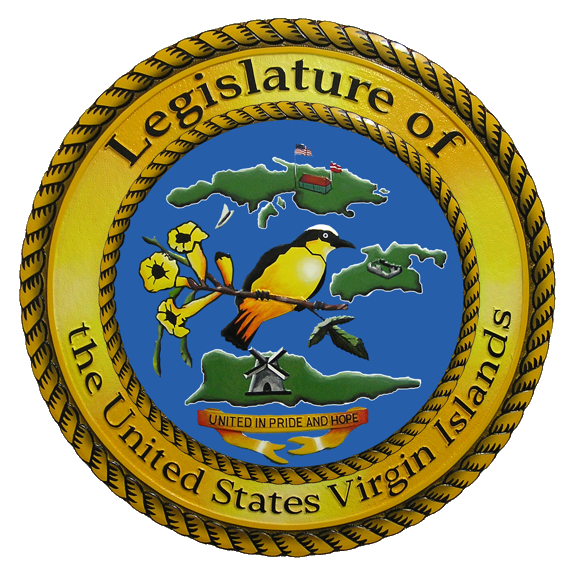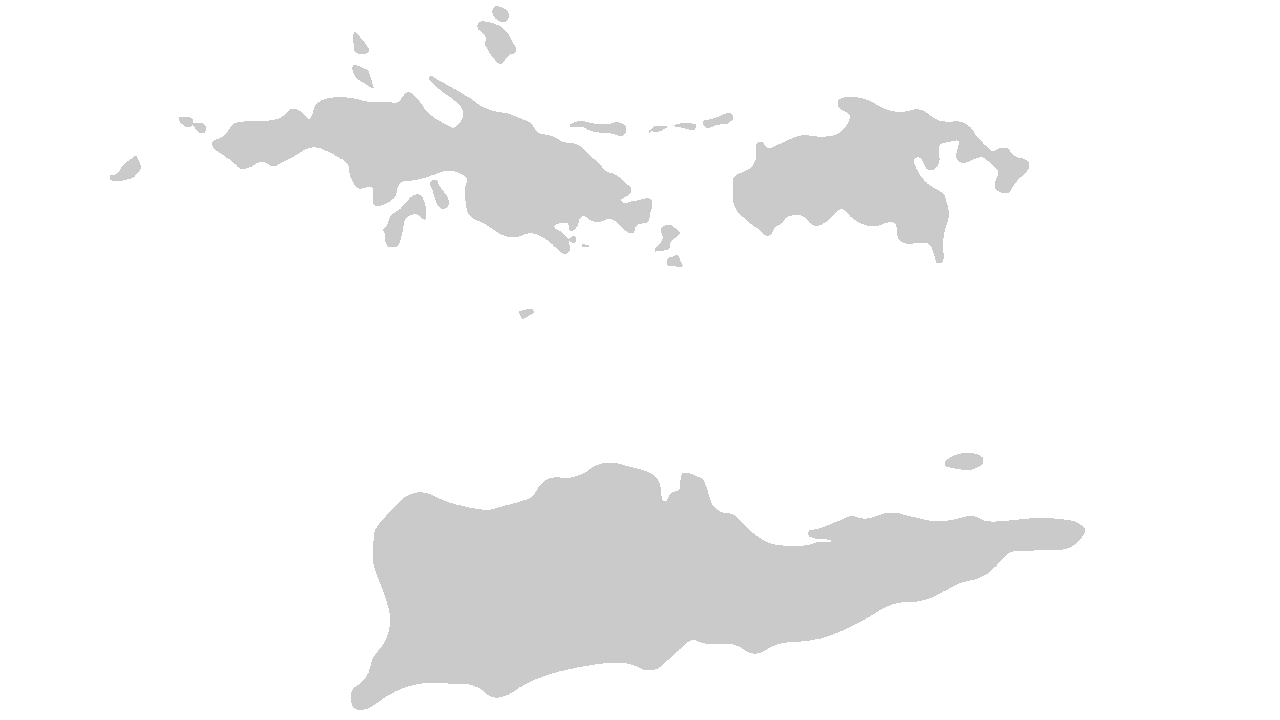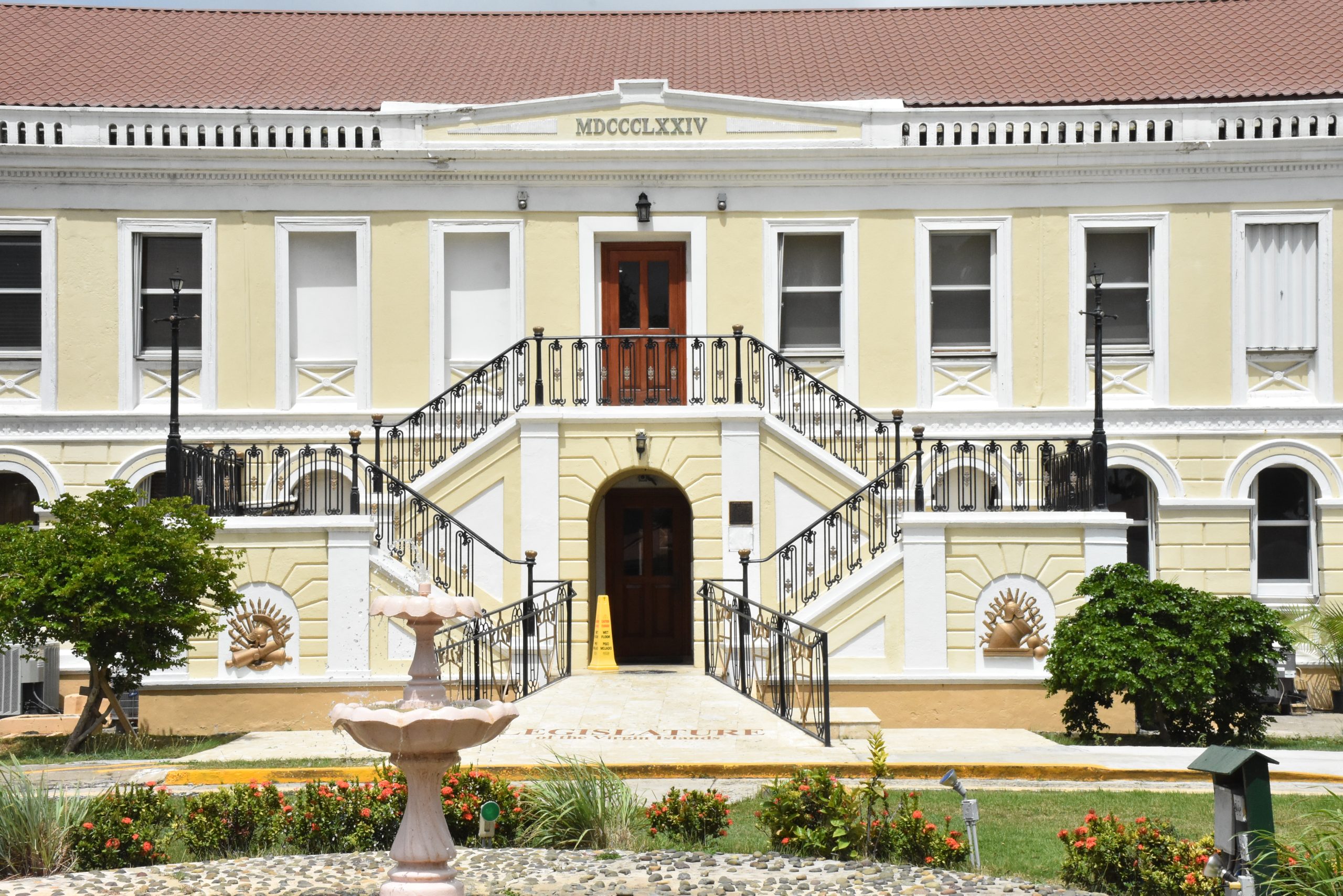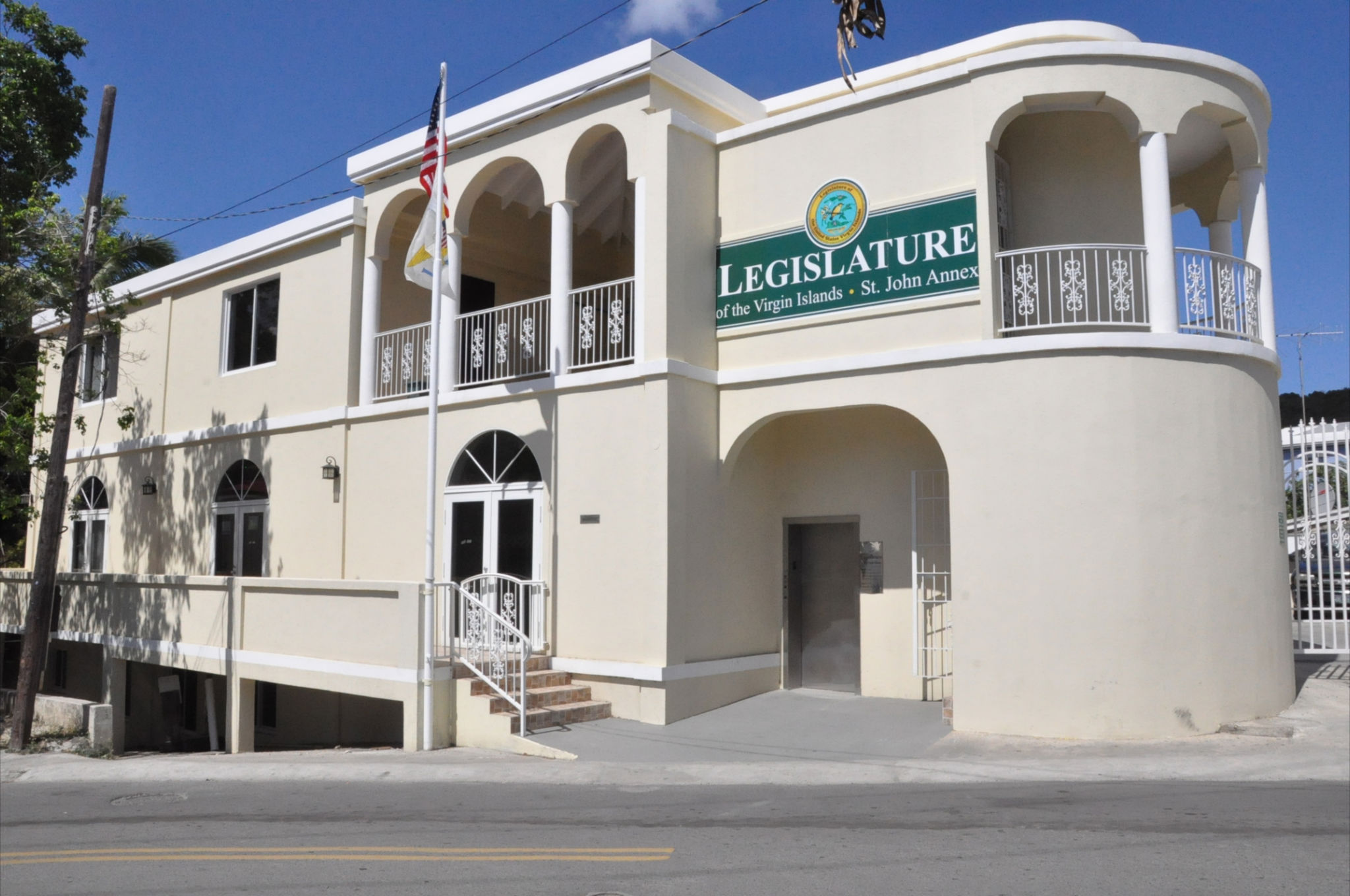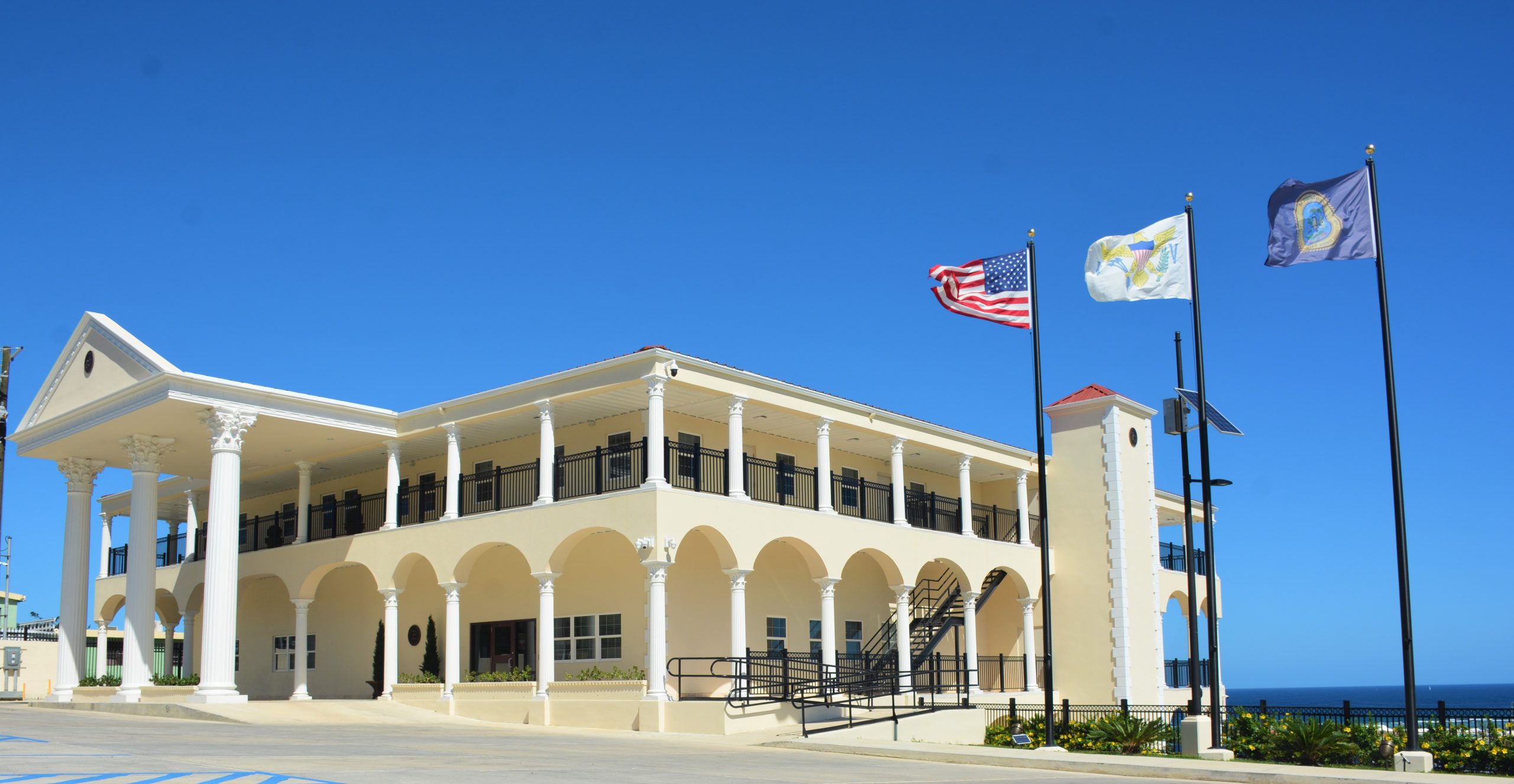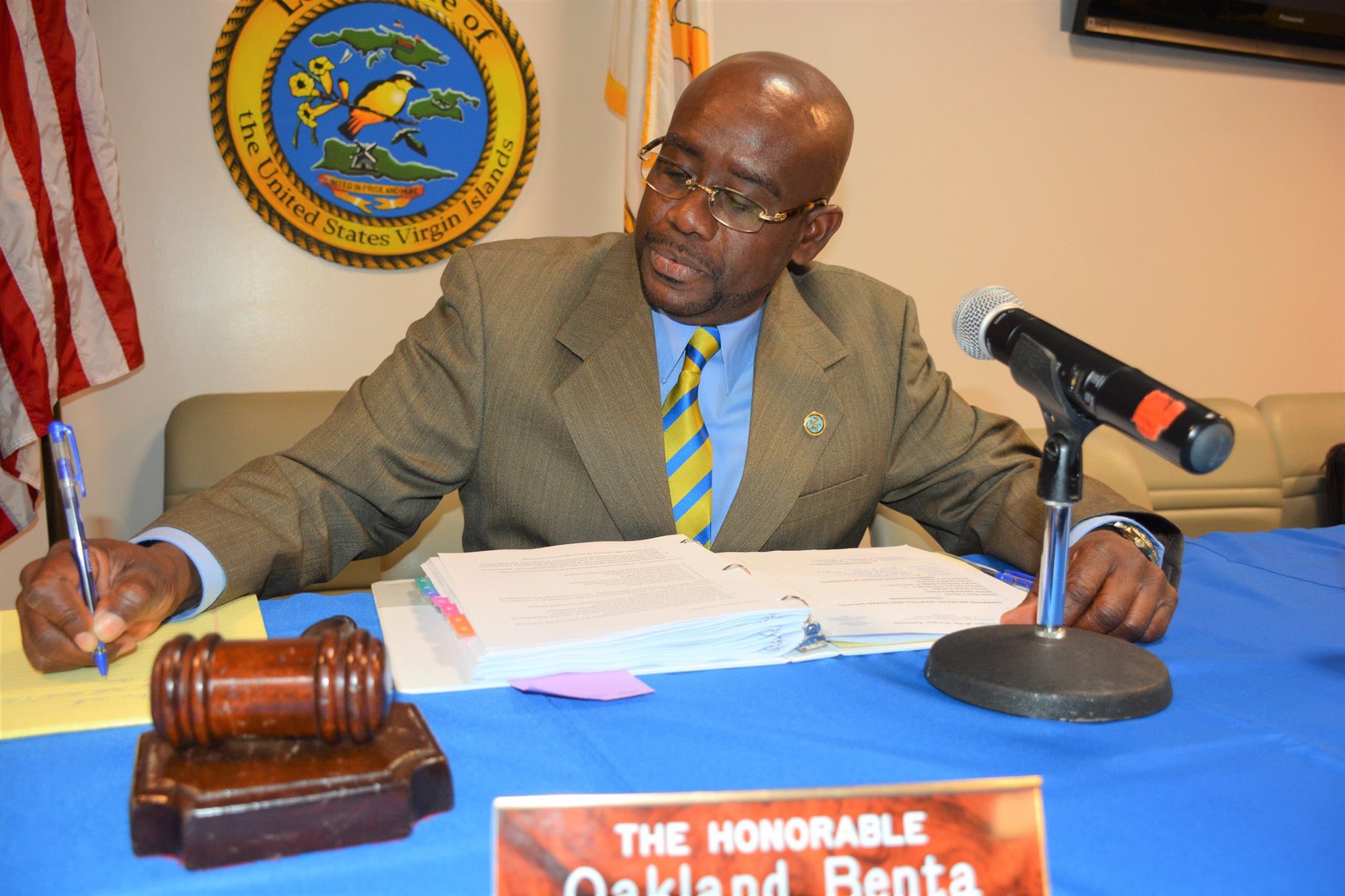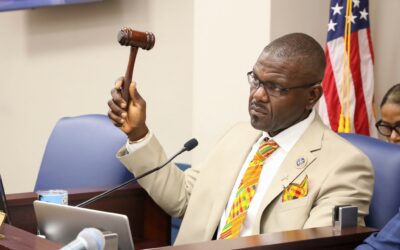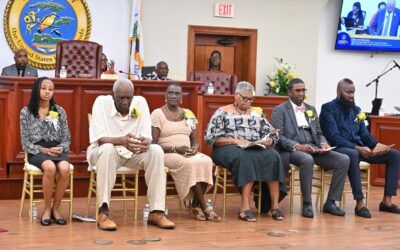ST. CROIX–The Committee on Health, Hospitals, and Human Services, chaired by Senator Oakland Benta, Sr., met Monday in the Virgin Islands Cardiac Center, St. Croix where testimonies were given on the status and an overview of operations and initiatives from the Virgin Islands Sickle Cell Parent Support Group and also considered Bill No. 33-0077.
Nicole Craigwell-Syms, Assistant Commissioner of the Department of Health, explained how Sickle Cell Disease is passed on and some of its commonly noted symptoms. She said Sickle Cell Disease (SCD) is an inherited blood disorder of the human red blood cells, which detected by a positive laboratory blood test called hemoglobin electrophoresis.
The Virgin Islands Department of Health, stated the Assistant Commissioner, does not have a local sickle cell disease registry. She added that, a Sickle Cell Disease Registry will allow for a more accurate count of the individuals affected by the disease in the territory. The Department, she said, currently relies on data from their key healthcare partners that serve individuals with Sickle Cell Disease.
Regarding Sickle Cell Disease occurrence in the Virgin Islands, Craigwell-Syms stated that a total of 568 live births were recorded for the year 2018 in the St. Thomas/St. John district while a total of 408 infants were born in the district of St. Croix. She pointed out that 103 babies tested positive for various abnormalities on St. Thomas/St. John with 61-percent of them tested positive for the sickle cell trait.
In addition, according to her, 87 infants tested positive for abnormalities on St. Croix with 46-percent tested positive for the trait. She added that there were two confirmed cases of the disease in St. Thomas/St. John District and one confirmed case of the disease in the St. Croix district.
Funding in the amount of $240,000, said the Assistant Commissioner, was allocated in FY 2019 for sickle cell and $132,000 in FY 2020. She added that FY 2019 funds were utilized to support awareness, education, and community outreach activities. FY 2020 funds will support initiatives to increase awareness and identify individual sickle cell cases. Additionally, funding will support their efforts to develop the Sickle Cell Disease registry in the territory as they enter a memorandum of understanding with John Hopkins University.
Dr. Erole Mclean-Hobdy, VI Oncology & Hematology, PC, stated that some of the gaps that she has seen in terms of providing optimal sickle cell include: (1) Lack of a sickle cell registry which is vital in obtaining a better understanding of who is affected, how many are affected, the type of sickle cell diseases that are prevalent, and also outcomes and life expectancy. (2) Lack of coordinated care for patients especially children. There is universal testing for sickle cell disease for every newborn child in the territory. However, if the test does show that the baby has sickle cell disease, there is no uniform or consistent system in place.
(3) Lack of necessary resources for sickle patients who are currently ill. The many complications of sickle cell disease, acute chest syndrome and acute stroke are some of the most critical and life-threatening emergencies.
(4) Lack of a “home†for sickle cell patients. Sickle cell patients require a lot of supportive care and as such would benefit from having a place that can provide centralized care dedicated to sticklers. An outpatient day center staffed with a physician would be ideal. Patient would be able to get pain management, blood transfusions, exchange transfusion, and counseling.
Other testifiers were Charmaine Mayers, Director, Maternal and Child Health and Children with Special Health Care Needs Program; and Germaine Powell, President, VI Sickle Parent Support Group who stated that the mission of the Corporation is to impower the people of the Virgin Islands to become active participants in the organization to create awareness of the impact of the sickle cell conditions on the individual and family.
Bill No. 33-0077-An Act amending the Virgin Islands Code and adding a new chapter relating to the financial exploitation of the elderly persons of dependent adults, proposed by Senators Allison DeGazon and Javon James, Sr.
Speaking on the Bill, Sen. DeGazon, stated that elderly financial exploitation affects all of us. She added that this abuse is now a significant problem and is expected to be increased, this abuse is also recognized as financial, psychological and other forms of exploitation.
Kimberly Causey-Gomez, Commissioner of the Department of Human Services (DHS) stated that there is a need to heighten the awareness and effective response to financial exploitation of the elderly and dependent adult. According to her, DHS came before the Committee to recommend that the Bill include language that would strengthen their ability to effectively investigate suspected and known cases of financial exploitation of elders and dependent adults.
Denise George, Attorney General of the Virgin Islands, said the financial exploitation of the elder and dependent adults has become a growing problem over the years and has been labeled by some as the “Crime of the 21st Centuryâ€Â. She added that given just the small sampling of the numerous and complex issues that relate to elder and dependent financial exploitation, she stands in support of the measure with recommendations for amendments.
Trevor Velinor, Commissioner, VI Police Department (VIPD) said in his testimony that his agency stands in support of the Bill and understands the importance of having measures in place to deter those who prey on our elderly and dependent citizens. He pointed out that financial crimes and exploitation can involve the illegal or improper use of a senior citizen’s funds, property or assets, as well as fraud or identity theft perpetrated against older adults.
Gwendolyn Hall Brady, Director, Division of Banking, Insurance and Financial Regulations stated that the Division finds there is an unquestionable a need for laws to protect elderly persons and dependent adults in the Virgin Islands from the crippling effects of financial exploitation, but the laws must be unambiguous, defined plainly, and enforceable.
Another testifier in support of the Bill was Corinne Plaskett, representing Troy de Chabert Schuster, State Director, AARP Virgin Islands.
The Bill was voted out of the Committee with a favorable recommendation and forwarded to the Committee on Rules and Judiciary for further consideration and further amendments.
Committee members at Monday’s hearing were Chairman Senator Oakland Benta, Sr., Athneil “Bobby†Thomas, Kurt Vialet, Donna Frett-Gregory, Marvin Blyden, and Kenneth Gittens, Stedmann Hodge, Jr. Non-Committee member present: Senator Allison DeGazon.
